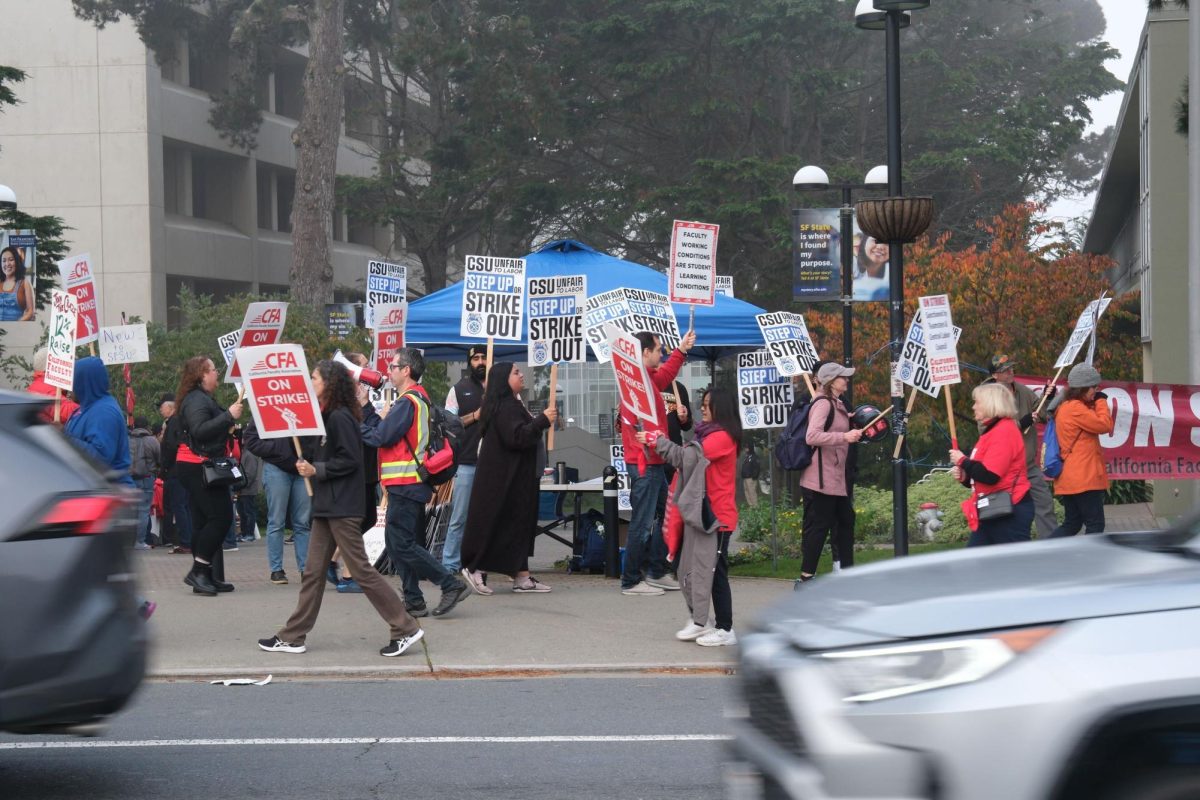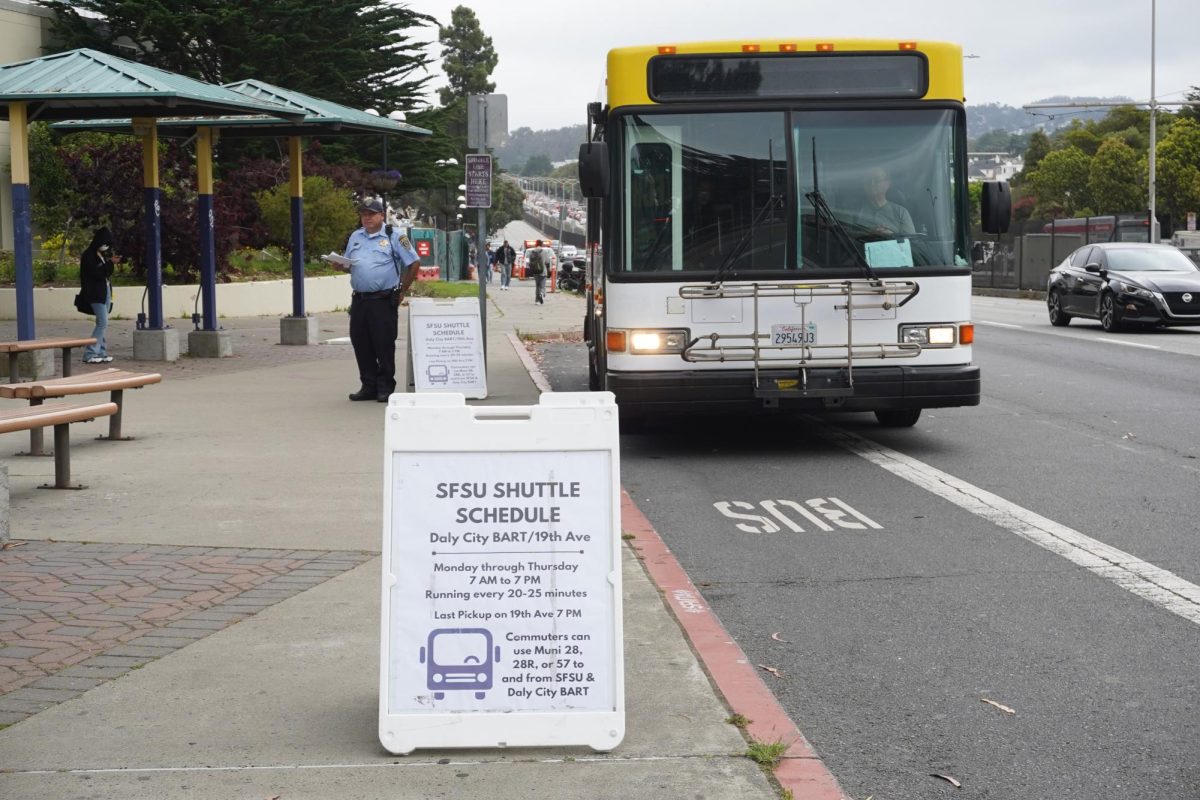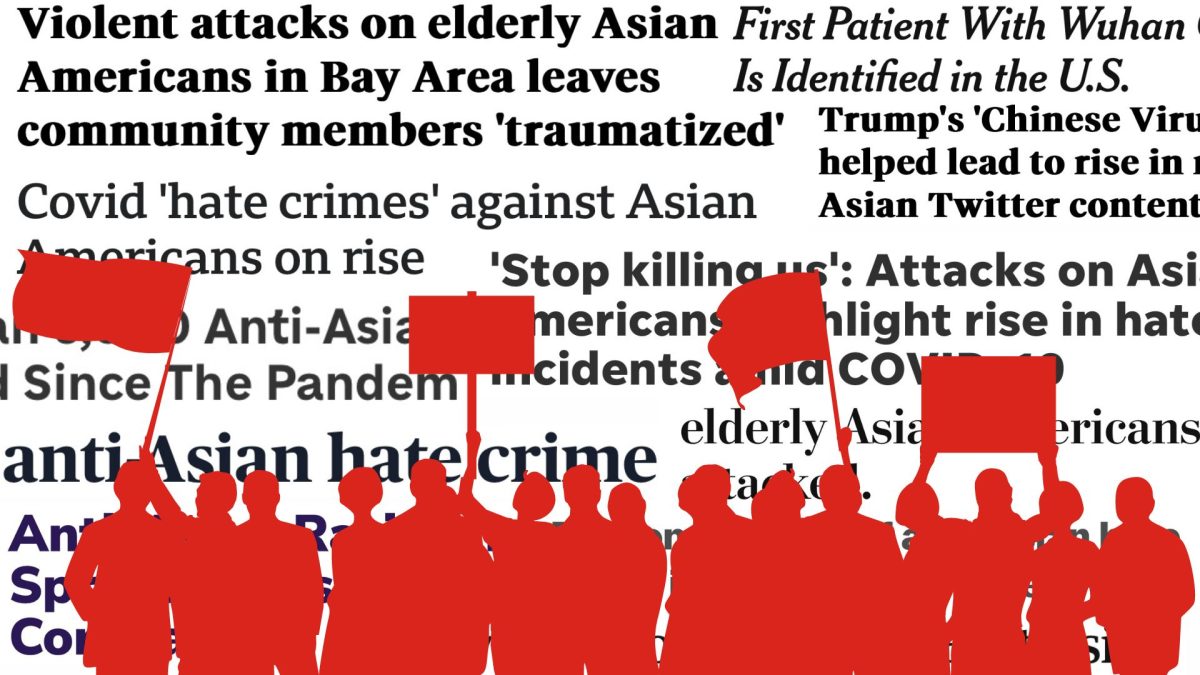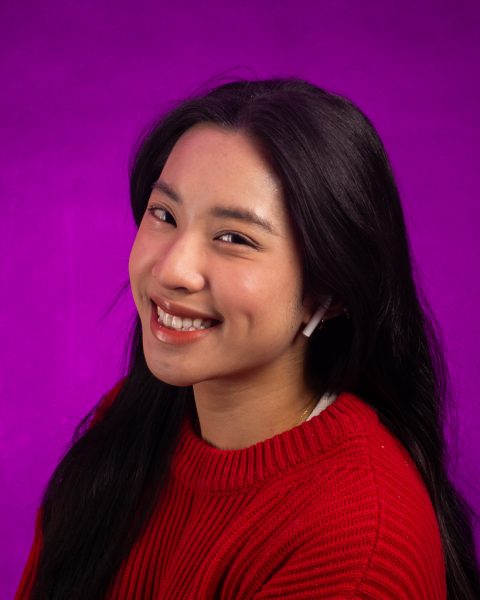Welcome to Gator Talk, the Xpress video podcast that brings San Francisco State campus perspectives to local, regional, and national news.
In today’s podcast episode, copy editor Sunthi Jong sat down with Nour Loren — the manager and main counselor for The SAFE Place — to discuss navigating relationships and identifying toxic behaviors, as well as bring resources for those in need.
For the first time ever, Gator Talk also features a multimedia element. Check us out on YouTube:
Intro
Sunthi: Happy Valentine’s Day, and welcome back to Gator Talk, in the first video version of the podcast. I’m Sunthi Jong, co-copy editor for GGX. Today’s episode centers on The Safe Place, a confidential counseling service for victims of gender-based violence. We’ll talk about how to navigate relationships and discuss toxic behaviors, as well as identify resources for those in need. Joining us today will be Nour Loren, the manager and main counselor for The SAFE Place. Let’s get started. Happy listening.
Interview
Sunthi: Thank you so much for being here with us today, Nour. How are you?
Nour: I’m well, thanks for having me here.
Sunthi: Of course, of course. So we’re just gonna get right into it. If you could really briefly discuss your educational background and some of the work that you did prior to joining SF State, that’d be great.
Nour: For sure. So I have a bachelor’s in sociology and Ethnic Studies and Women and Gender Studies. And then I got my master’s in social work. I mean, so part of the work that I was doing beforehand was about clinical counseling, and then supporting survivors of gender-based violence and more of the community and organizations and, like, nonprofits. So I have more of that background.
Sunthi: Okay, for sure. And so you moved out from the Midwest to the Bay Area to continue that work. Am I right?
Nour: Correct. Yeah.
Sunthi: So why SF State? Like, what drew you to the campus?
Nour: For sure. First and foremost, like documenting the first College of Ethnic Studies was here, it was definitely a draw. But as I was doing research about San Francisco State, like the student activism part of it really drew me in. I think it’s, like, great how the students here have such, like, a voice on campus and are able to go through processes to get their needs met institutionally.
Sunthi: Yeah, for sure. So you had mentioned when we spoke that the work that you’re doing at The SAFE Place is a little bit different in terms of, like, how you structure the program, and, like, how you cater to a different demographic. If you could talk really briefly about the difference between, you know, the work that you were doing versus the work that you’re doing in an academic setting on a college campus? Like, what are some of the differences between that? How do you approach it?
Nour: Sure. So a lot of the work in the nonprofit community organizing space was with adults, like, ‘30s, ‘40s, ‘50s plus. And while that work was definitely like, rewarding, I think, like, what drew me into working in an institution of, like, higher education, like San Francisco State was that ability to work with, like younger adults freshly entering their adulthood. And my reasoning for that is because, like, I am specifically drawn to thinking of ways and, like, figuring out how to end gender-based violence on campuses, but collectively within, like, us as our society. And I think, like, the best way to implement those interventions are with adults freshly entering their adulthood. So, like, that 18 to 22 age where developmentally like, you’re still growing, right, and like, becoming the full person that you are.
Sunthi: You’re marinating.
Nour: Yeah, for sure. It’s coming together. But yes, I think that late teens, early 20s, is such a pivotal time in people’s lives. And so one of the best times to try to try to create systemic and long-lasting change.
Sunthi: And I think that does get into kind of what the heart of today’s talk is supposed to be about, which is really this idea that, for some of our listeners, you know, they’re new to a university setting for sure. They’re new to adulthood and the sense of independence that can come along with that. Many of them are in their first, or one of their first committed, like, real adult relationships. And it’s an exciting time. But there are definitely a lot of pitfalls associated with that as well. I think we can, you know, inadvertently find ourselves in a lot of situations that we never anticipated. And I really like that idea that this is really the time to be addressing that and figuring out how to navigate these relationships in a healthy way, in a safe way, in a safe place. So for people who don’t know already, people who are just hearing about it for the first time, what is The SAFE Place? You know, what’s its history at the university? What services specifically do you actually provide there?
Nour: For sure. The SAFE Place is the only confidential space on campus. And so that’s really important for students to be aware of in case, like, any situation — but specifically around gender-based violence, so including, like sexual assault and harassment, intimate and domestic partner violence, stalking, like around those experiences. I am able to support students and like crisis counseling, advocate for them, navigating whatever it is that they need to, you know, seek out for their healing process. So whether that’s, you know, deciding to report to Title IX or university police or SFPD, or whatever the case may be, or providing them resources and referrals is a big part of my job. And so let’s look at, like, you know, what are the next steps for you, in terms of, like your healing? And so, referring them to SF General for forensic exams, or referring them to, like, community organizations to get, like, additional support, or on-campus organizations, or whatever the case is. So I think of, like, The SAFE Place and the work that I do as, like, being that bridge are the initial, like, stepping stone for, like, their long-lasting healing by connecting them to the things that they need for, like, first and foremost, their well being — like their emotional and psychological well being. And safety is, like, the most important aspect, but then also like their success as students.
Sunthi: So you mentioned that The SAFE Place is the only confidential space on campus for people going through these situations. Has it remained so since its establishment? Like, when was The SAFE Place established? Do you know?
Nour: So The SAFE Place came on SFSU campus in 1992. So it’s about 32 years that The SAFE Place has been around. And since its inception, it’s always been a space for students to have access to a non-mandated reporter, which is important because everyone on campus is a mandated reporter. And so, um, you know, you can feel supported by your faculty, your peers, or whatever the case is, but at the end of the day, like, if you don’t want to go through institutional systems, right, The SAFE Place is there. And so I think, like, it really came about wanting to have a more trauma-informed approach to supporting college students who are survivors. And so, yeah, I don’t push any initiative. Like, you know, healing is not a one-stop shop. Like there’s not one pathway to, like, what someone’s journey is. And so I think, like, what’s most important is, like understanding, for that particular person what it is that they feel like is restorative, and figuring out the pathways to get them access to that.
Sunthi: Right, right. And you had mentioned that there’s a lot of outside resources that you collaborate with as well. What are some of the outdoor resources if people want to take, like, the non-campus-affiliated route, right? Like, what are some of these other community organizations that they can gain access to?
Nour: For sure. So we have a really great partnership with SFWAR (San Francisco Women Against Rape). And that’s the one that I typically refer students to just because, like, they’re local, and they’re just a really great organization overall. But there’s Bay WAR (Women Against Rape), which is like the sister program to SFWAR. There is La Casa de Las Madres, Asian Women’s Shelter. CUAV, which stands for, like, Communities United Against Violence, which is more supportive for LGBTQI+, folks, but although like the names of these, like, spaces are very gendered, they are open to all folks who experience gender-based violence, because it’s not just cisgender women who are impacted by this. And so, yeah, that’s just a resource that whoever is a survivor is able to access.
Sunthi: And the last time we spoke, you had mentioned that you’re new to the management position for The SAFE Place. You joined in August, right?
Nour: Yeah.
Sunthi: So are you doing anything to really, like, change the structure of the program to expand upon it, or maybe improve what’s already there?
Nour: For sure. So since The SAFE Place has been on campus for the last, like, 30-plus years, there’s only been one advocate on campus which is not sustainable. I think in order to effectively support all students and really, do some of the, like, prevention education work that I think is, like, necessary and part of the job. And so we are expanding, which is, like, super exciting. So we are in the process of hiring a second advocate which is, like, very exciting. And then we are looking at, like, the process of Safe Place and, like, how we can foster more collaboration with different student organizations, playing clubs on campus and just like different affinity groups in order to, like, get the word out there. I think first and foremost, like, that’s the most important thing, still, but then to, like, do some programming and workshops and trainings. And to just think more about, like, how The SAFE Place can not only support students but really be a vehicle and part of this, like, mission to end violence on campus.
Sunthi: So my question to you is, you know, the people who have been in your office, and you’ve helped them start this journey of, like, reclaiming themselves and healing from whatever situation they’ve been through, what are some of the common issues that are presented to you when people are in your office, and they’re talking to you? In the SF State community, what do people seem to be struggling with in their relationships?
Nour: Sure. And I think it goes back to the point that you mentioned earlier, where it’s like, this is oftentimes, like, people’s first relationships or one of the first moments in their lives that they’re experiencing, you know, deeper, more adult situations. And so outside of like, some experiences that, you know, folks are, like seeking support for that happened, like, off-campus or on-campus — like in terms of relationships, specifically, some of the things that’s like, mentioned is like, “Oh, my partner isn’t like respecting my boundaries, and like, how do I have this conversation around like, these things are not feeling good to me, but I do want to continue our relationship with them?” Or, “Oh, this person is, like, gaslighting me,” or “They’re speaking to me in ways that, like, are triggering or don’t feel good,” right? Like, how do I have that communication? And, like, “I don’t want to be addressed like this,” you know? And so it’s just, like, really having conversations around, like, what does that skillset look like? And recognizing, like, you know, if the relationship is not feeling good, like, listen to that intuition, and then, you know, if it’s not serving you, what are appropriate ways of, like, ending that? And so I am also available to like, support students, in, like, figuring that out, too. Like, let’s talk about it. Right. Um, and so, yeah, I think like, overall, The SAFE Place is just one of the many resources that are available to students in, like, getting them support around like, what is a healthy relationship? What’s not healthy? And, like, what do you want? Where do you want to go from there? Right? I’m not in the business of telling people how to live, right? But I just want to support them in thriving, and, you know, whatever it is that they want to do.
Sunthi: Right, right. You know, I like that you call it a skillset, because that’s really what it is, isn’t it? Like, we — when it comes to relationships, whether it’s platonic or romantic — like, we do not intuitively know these things. We don’t intuitively know how to do that. And so I really — calling it a skillset, I mean, it really centers that idea that this is a learned, like, lack of education, would you say? Is that what you’re combating here?
Nour: I think that’s a big part of it, for sure. I mean, unfortunately, like, our K-12 education does not prepare students to have these conversations to engage in these relationships in ways that are healthy. And so, yeah, I think when students come to college, right, it leads to a multitude of like, growing pains, and it doesn’t invalidate just, like, behaviors that are objectively —
Sunthi: Bad.
Nour: Yeah. There’s that. But, yeah, I think a lot of it is just, like, general lack of, like social skills, and like, the growing pains of, like, acquiring those skills. And so I think through education, that’s a big way of like, implementing, or, you know, ensuring that, like — modeling is the word I’m looking for — and modeling those behaviors that are healthy, right, and, like, healthy ways to engage in whatever type of relationship whether it is romantic, platonic, something in between. And yeah, how to do that in a way that, like, all parties feel good. And then it ends like, “how do we end this too,” because that’s also important to like, talk about.
Sunthi: Right. You heard her, guys. This is the time while your brain is still marinating, before your flaws become your personality. And so, for students who are scared to find themselves in your office — because you are who they will be speaking to — you know, people who, whatever reason, if it’s, like, this internalized shame, if it’s just, “Oh, I didn’t know I was supposed to be talking to someone about that,” — like, people who are scared or hesitant or unwilling in any way to get themselves into your office. You know, they’re being held back or holding themselves back, what would you say to get them to approach you?
Nour: For sure. First and foremost, like, I’m a very survivor-centered, person-centered person overall and practitioner of the work that I do. And so I’m never going to do anything that the student says that they’re not comfortable or don’t want to [do]. I myself, and I think, like, since The SAFE Place has opened, other advocates that preceded me have always been trauma-informed and use a trauma-informed approach to the work. And yeah, I think, like, what I would want to express with, like, all students is that like, you know, I am here to, like, support them, and whatever process that looks like. And I’m also the only confidential space on campus, and so if you don’t feel comfortable, like, going to someone who would have to report but you are looking for a little additional support in ways that, like, your friends may not be adept or equipped to support you with, like, definitely feel free to just reach out and like, let’s have a conversation. You know, and I’m more than happy to provide the resources that I can and if I don’t know the answer, I’m not gonna, like, pretend that I do, right? But I will do my best to connect them with the person, or people, or resource, or whatever it is that is needed. So, you know, to facilitate, you know, the healing that’s happening, because, you know, at the end of the day, I just want all students to, like, be great. Graduate. Live their best lives.
Sunthi: Graduate. You guys, we can do it. It’s the spring semester. I know we’ve got people in the graduating class listening. Almost there. Oh my god, will we make it? Who knows?
Nour: You’re gonna make that.
Sunthi: Thank you. I appreciate it. So thank you so much, Nour, for coming on today. It was a pleasure to speak with you as always. And for our listeners, this was Nour Loren, the manager of The SAFE Place. If you or someone you know is in need of resources offered by The SAFE Place, if you need someone to talk to, you can find Nour in the Student Services Building, room 403. You can phone in at 415-694-3825, or you can email at [email protected]. Again, this was Nour Loren with The SAFE Place. Thank you so much for coming on today; it was lovely to speak with you. Happy Valentine’s Day to all of our Gators listening. This has been Sunthi Jong with Golden Gate Xpress on Gator Talk. Thank you again.













